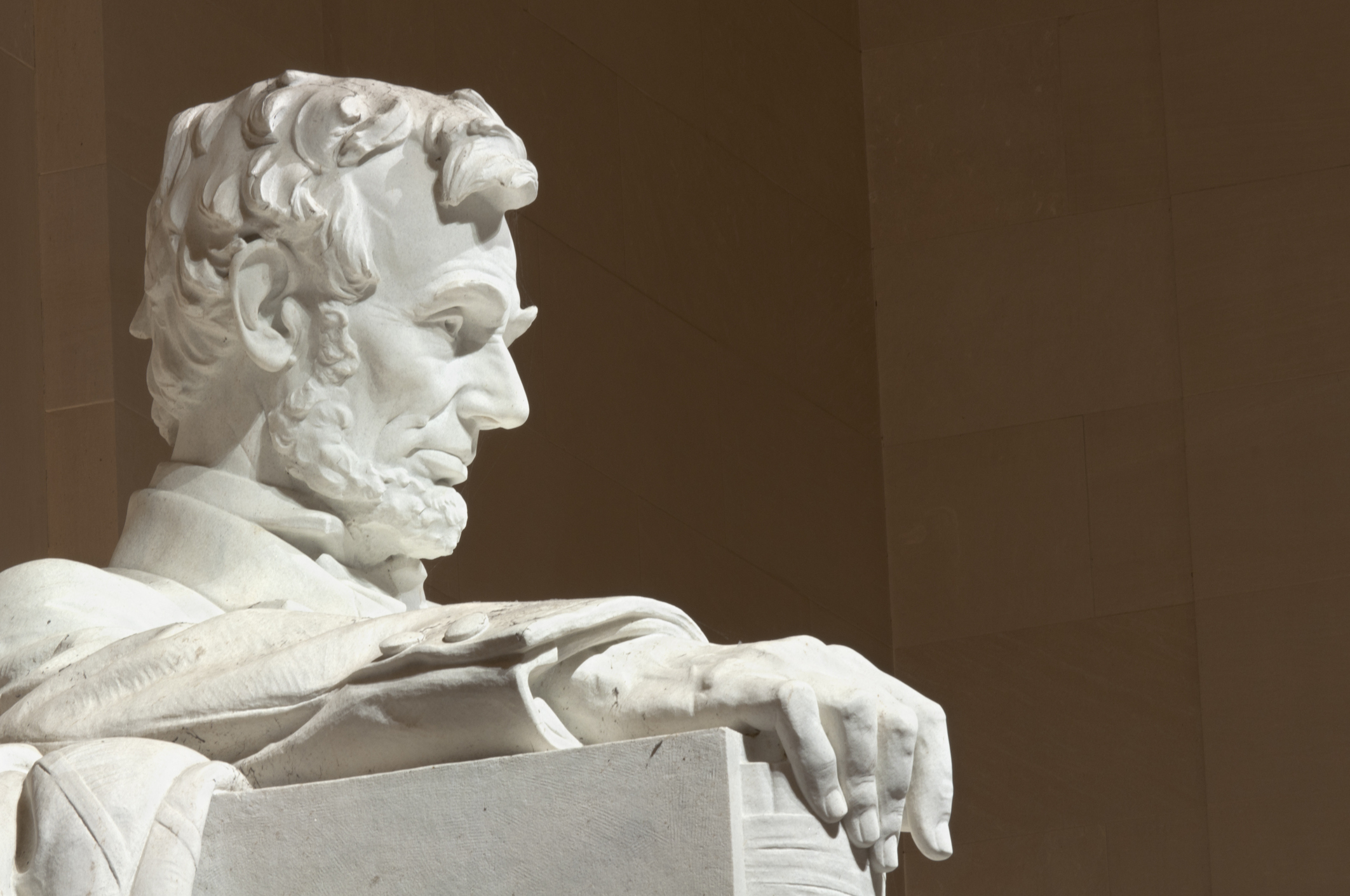Without a common understanding of the human person and the human good, academia is reduced to job training, politics, or consumerism.
The New Blank Slate

An English literature professor describes how he came to love teaching Freshman Comp.
When I took my present job as a tenured professor at a medium-sized Midwestern American regional university, many years ago, I was hired to fill a position in literary theory, which meant offering a graduate seminar in one of my areas of expertise each semester. I would be granted freedom to cultivate other interests as well, by teaching in Honors and starting up a World Literature course on Israeli authors in translation. Like others, I would take my turn at Freshman Comp every now and then.
Moreover, while my trendy specialty might have been seen as cutting-edge at the time, and my wish to make a small place for modern Hebrew writers in the Schedule of Classes slightly novel, I was pleased to note the basically conventional nature of the curriculum. This was before postmodern “theory” became identity politics became wokeism.
Since then, I’ve learned that once liberal education loses faith in itself, it might be better for the average university to set its sights a little lower—not so low that we shoot ourselves in the foot, however. We should start by admitting that as of now we are not “preparing students for citizenship,” instructing them in “critical thinking,” let alone imbuing them with anything genuinely “liberal” in the classic sense. These days, students are indoctrinated with the manners and mores that their rulers expect of them, while being drilled in rudimentary literacy skills and habits of time-management. We offer remedial moral hygiene and psychological orthopedics for the Age of the Internet and Trans-Everythingism. We teach them to wipe their slates clean and keep them that way.
Buzz-Fed Cyborgs: Plato’s Pharmacy and Ours
At the time, I thought of what I did as part of Western culture’s never-ending dialogue between Athens and Jerusalem, reason and faith, philosophy and literature. So, in those evening seminars, over the years, I assigned Plato, Aristotle, Nietzsche, Freud, Marx, Bakhtin, Levinas, Leo Strauss, Stanley Cavell, Thomas Pavel (my esteemed mentor), as well as Lacan, Derrida, Foucault, Hayden White, and Judith Butler. We examined critically Dickens, Dostoevsky, Conrad, Kafka, et al. As in the Euthyphro, we went in circles I fancied were spirals. I saw the course as not at all divorced from a normal liberal arts education, in other words, but a supplement to it.
I even imagined what I was doing as in harmony with the vaunted ideal of a Great Books education, which I used to fantasize about slowly reviving in my off-the-beaten-path location. What looked provincial on the map would prove more civilized than the corrupt metropolis, when the vandals got done with it. I would cultivate my garden. Some of us hicks from the sticks could be a part of the motley remnant, leading from behind a ragtag revival of the humanities, after it was done being euthanized by city slickers injecting their stepped-on Marxism in the form of political correctness. Surely, the public would not indefinitely put up with the drift into nihilism that called itself liberation of oppressed identities—but really meant the pointless substituting of “inclusion,” as an end, for pursuit of excellence.
In a university system where Democrats outnumber Republicans 13 to 1, and in a field where we’re a rounding error, I was a closet conservative, biding my time and hoping for the best.
Alas, I had not foreseen the full extent of the corruption, crystalizing of late as CRT and metastasized throughout not just higher education but K-12 and society at large, in the form of woke capital. Antisocial media like BuzzFeed, for example, had been cashing in by spoon-feeding children poisons concocted originally by academic “theorists” like Donna Haraway, the socialist-feminist author of 1985’s “Cyborg Manifesto.” For Haraway, there was already, in principle, no difference between humans and their technology. All there to be tinkered with. Her student in the 1990s, BuzzFeed’s founding CEO, Jonah Peretti, set out to prove it, when the Internet came along, by dehumanizing his audience, treated merely as a bunch of eyeballs with reflexes plugged into screens, in keeping with her anti-human teachings. Who knew politically correct “socialism” could be so profitably monetized!
The alliance of politically correct faculty and administration and corporations proved fatal. One could almost say total: with even students themselves finding their identities online in the form of proliferating victimhoods and countless genders, the alliance of prisoners, guards, and a kind of “luxury prison industry” for dimwitted cyborgs grew tighter and tighter.
Now, when the nature of “diversity, equity, and inclusion” has come to replace “the good, the true, and the beautiful” as our shared object of inquiry, it may be too late to salvage what’s left of higher ed.
Gender and Genre: You Can’t Say That!
During my job interview, I had been asked to “name a theorist” I really liked, and out of my mouth popped “Tocqueville.” Having also done postgraduate work in political philosophy, I thought of “theory” broadly.
I guess the committee must have been tickled by this oddball reply, for they hired me. Perhaps they hoped I’d offer students a bridge between old and new, mixing canonical texts with some fresh ideas about them—joining established classics with modern contenders for future classic status.
But since then, the humanities have been burning bridges, and my “progressive” Midwestern state school has liberated itself almost entirely from commerce with the old canon. I myself could never be hired there now, and certainly not in “theory.” Conservatives need not apply at places governed by the ethos of “intersectionality” (never mind Zionists!).
Moreover, I eventually chose to step aside from teaching the biannual “proseminar” I was hired to teach, just as things were heating up. The old department head was set to be removed (before coincidentally dying of a heart attack, shortly in advance of his replacement) and six more positions in the department opened up quickly after that, amidst a slew of incentivized retirements. The Old Guard seems to have been chastened by intrigues and calamities while I was away on sabbatical, in Jerusalem. You might say I saw the arche-writing on the Wailing Wall. In any case, I returned to a changed department.
For, sure enough, when I got back, all the new posts were filled, as was the vacated DH slot, by ardent radical postmodern feminists. Suddenly, “the personal is the political” took on new meaning, and I wanted no part of it, as grad student admissions followed suit. We were, almost overnight, in effect a high-tech Women’s Studies department—with a few men left hanging around the edges to be reminded, periodically, “you can’t say that.”
In other words, a normal department that used to have rough gender parity (I never thought about it) in terms of faculty, is now 70 percent women and, more important, overwhelmingly ideologically feminist, giving it a strong presence in the allied Gender Studies program—itself a purely political group, despite whatever they say about being academic or scholarly. Gender Studies spends its resources spreading ubiquitous notices across campus about nonexistent phenomena like “toxic masculinity,” “rape culture,” and “whiteness” throughout the year. Experts on “microaggressions” are brought in, at taxpayer expense, to instruct students on what to complain about, how to complain, and whom to complain to.
If I had more talent, I might have written a satire on my industry far more scathing than Netflix’s PC take on woke, The Chair, or started a podcast. But as it stands, I have decided to go ahead and publish this piece, in spite of warnings from friends concerned for what happens to whistle blowers.
Why? Because I can confirm that our national reckoning with CRT is fully justified. Either it goes or our education system is sunk.
Bleeding Hearts of Darkness: Ground Zero for Woke Bureaucracy
Am I not exaggerating the importance of my own little podunk institution, however? To prove I’m not kidding that we are, in fact, an epicenter of this stuff: we were even written up in Jonathan Haidt and Greg Lukianoff’s bestselling book, The Coddling of the American Mind, as more than just a striking example of how administration should not deal with students and faculty on matters of free speech—the very inspiration behind the sensational book itself! That’s what it’s like now—not just at Yale, Princeton, UC Santa Cruz and Berkeley, but in the hinterlands.
Don’t let anyone tell you it’s confined to a handful of prestigious institutions. The penetrating critique that Haidt and Lukianoff developed was first conceived in response to what they aptly deemed “administrative overkill” productive of “cognitive distortions” among students in the middle of nowhere.
Needless to say, we’re bleeding male undergraduate enrollments from such a deracinated, dysfunctional, ideology-driven program. Yet when I raised this as a concern in a department meeting convened on the very subject of declining enrollments, my proudly non-binary department head’s quick-witted reply was, “Well, I’ve never seen it as my job to attract men!” LOL. More tellingly, not one other person spoke up that day (out of at least two dozen present) to say there was anything at all to my query (as gently proffered, I assure you, as it was). Albeit, my dean didn’t seem to like it much, when I mentioned it to him; but I got the impression his hands were tied, so long as this kind of attitude represented the will of the department.
Since then, I’ve been asked directly, more than once, by dismayed parents, “Is there anyone else non-crazy, besides you, who’s not a man-basher, with whom my kid can take another English class?” And I’ve had numerous young men and women, both, contact me privately to say they’re either dropping the major or ruling it out as too repressive, too censorious, too woke—too “CRT.” One complained, recently, that she decided to graduate a year early, in fact, to get done with it, and thus escape from a politicized educational environment she felt disrespected her and her family’s (conventional) religious and political convictions.
Are there not, though, on the other hand, problems with racism and misogyny at a predominantly “white,” midwestern school? Not many, really. Americans hate racism. And what little there may be will not be ameliorated by teaching kids they’re essentially white and/or culpably male, thus already perpetually guilty—a la CRT. If anything, CRT sows racial, ethnic and gender division. Nor will any genuine problems be smoothed out by the sort of administrator who told me, unabashedly, when asked for advice about some rowdy boys in one of my classes, “You work in a prison, your students have the minds of middle schoolers.”
CRT at large thus offers incompetent administrators, bitter senior faculty, and trepidatious “non-confrontational” assistant professors alike some hope of corralling those “angry white males” they like to talk about so much. For the truth is, the way our schools are arranged now suits smart girls of all races well enough. In this thoroughly feminized, mendaciously irenic space, where boys’ warlike difference is obsessively erased and demonized at once, the “masculine subject” may disappear, suffocate or find some way to rebel (however inapt). Treating them like dumb criminals and/or sick animals apparently seems the only way out for those with nothing else to offer.
Homogeneous Diversity: from Work to Text Message
And why is that? Why is there nothing more to offer at an American university? Did I mention the curriculum covered by those half-dozen newly filled positions, alluded to above, and what it replaced?
Let me put it this way. We used to offer courses in the Russian Novel, taught by a wise old Slavicist steeped in his weighty subject. You would meet his students in your classes and they’d challenge your own memory of Chekov and Tolstoy.
We used to offer courses on Medieval literature, taught by a well-educated enthusiast who also dabbled in Tolkien and the study of myth and legend, on the side. We had someone specializing in Milton. We had a Victorianist. Your students might have read, or be reading, Wuthering Heights.
There was a guy who loved Henry Adams, William Faulkner, and taught students to ask, “What does it mean to be American?” We had someone hired to teach the Romantic poets, when I first got there, though no such classes are currently offered.
Now, instead, in the name of “diversity,” we have three anglophone white women who all specialize in African American literature, Queer Theory, and Haraway’s Cyborgs. Your students are sure to have read Toni Morrison, Angela Davis, Ta-Nehisi Coates, and Haraway herself. They have a healthy disdain for “Israeli Apartheid” and pray that, soon, “Palestine will be free, from the river to the sea.” But they couldn’t find the offending Jewish state on a map nor have they read anything worth reading.
We have someone who writes about quilts and is doing a memoir on the far-flung, exotic topic of the difficulties of raising an adoptive child as a single mother in her late 40s/early 50s, without parental support but with OCD. Someone else with an eye problem proposes to document her trauma as a person of disability.
We have multiple practitioners of Native American literature, one of whom also specializes in something called “Eco-Theory.” I don’t know what their students read. And someone who does legit modern British literature, who is very sophisticated, multilingual, and whose students marvel not only at her intelligence (as do I), but that someone teaches such ancient stuff as early twentieth-century English writers. Indeed, the odd thing about the hyper-competitive job market in the humanities today is that someone like this (who’s really very good) comes to work where everything else is falling apart. Nor is she the only star, doing good things. It’s just that their natural glow is so obscured by the blinding artificial klieg lights of CRT.
Sub-Marxism at the End of History: from A to B and Back Again
So that’s how we became what students now mockingly deride as the “Department of Woke Studies,” governed by moral and epistemological norms that Chris Rufo has helpfully brought to the world’s attention as Critical Race Theory.
A term-of-art, CRT of course isn’t one reified “thing,” as its panicked defenders suddenly want to insist—trying desperately to distance themselves from what’s become a legitimate object of ire for scandalized fellow citizens. But rather it’s an apt umbrella term for critical legal studies, intersectionality, critical race and ethnic studies (as a whole program is openly called at my alma mater, UCSC), so-called “Antiracism” (Ibram X. Kendi, Robin DiAngelo) and Critical Theory more broadly (of which it may, I suppose, be logically considered a subset and thus technically a synecdoche, if you want to get technical).
For regardless of what one chooses to call it this morning, or what it may be termed later this afternoon, what the distinguished historian and poet, Robert Conquest aptly dubbed “sub-Marxism” is nothing so new. As he put it, some time ago, “though it is a bit much to go on finding sub-Marxism and such still thumping away,” one has a responsibility to recall “the reasons that doctrinairism-cum-scholarship is such an obvious intellectual disaster.” CRT is the latest name for the decades-long disaster unfolding in our schools and its effects on society.
From the late-Marxist theorists of the early to mid-twentieth century, Antonio Gramsci and Herbert Marcuse, with their parallel notions of perpetual culture war in place of a more punctual Workers’ Revolution, proper, all the way up (or down) to today’s CRT: sub-Marxism subtracts the salvific promise at the heart of the old Marxist metanarrative of redemption through radically altered economic relations, led by the “revolutionary subject.” Instead, it offers a proliferation of “subjugated knowledges” (Foucault) with the “privilege of partial perspective” (Haraway) seeing little and leading nowhere.
Thus, the new religion of wokeism leaves us with an intensified attack on original sin but no hope of absolution. Renouncing the assurance that History promises a better world of greater abundance, happiness, and mutual recognition for all, one insists instead on “equity” in the division of the shrinking wealth, diminishing power, and dwindling prestige on hand.
And me? Rather than having every class I teach turn into a discussion of white privilege, male privilege, and (trans)gender issues, I started asking to be assigned multiple sections of a course I hadn’t taught in years, or given much thought to when I first took the job: good old Freshman Composition. Oft misperceived as merely the grunt work of adjuncts and teaching assistants, it’s the most important course we offer, as I’ve come to see. The only course in which students can learn something of value.
And I love it! Once again, I am doing students some actual good—helping them learn to write—without feeling guilty for participating in their brainwashing by a destructive ideology that has been shown to be, among other things, anti-Israel and anti-Semitic by accepted definitions, not to mention anti-American and inhuman (I leave it to readers to decide which is worse).
Moreover, this way I get to them before they are fully indoctrinated by “well-intentioned” colleagues, so that relatively normal discussions can take place about relatively ordinary matters of common concern. I even sneak in a “classic” now and then, like George Orwell or James Baldwin. Or a bit of Tocqueville—a theorist I really like. And so do some of them.
The American Mind presents a range of perspectives. Views are writers’ own and do not necessarily represent those of The Claremont Institute.
The American Mind is a publication of the Claremont Institute, a non-profit 501(c)(3) organization, dedicated to restoring the principles of the American Founding to their rightful, preeminent authority in our national life. Interested in supporting our work? Gifts to the Claremont Institute are tax-deductible.
Following Trump's lead—and Lincoln's.
A reconstruction plan for education



